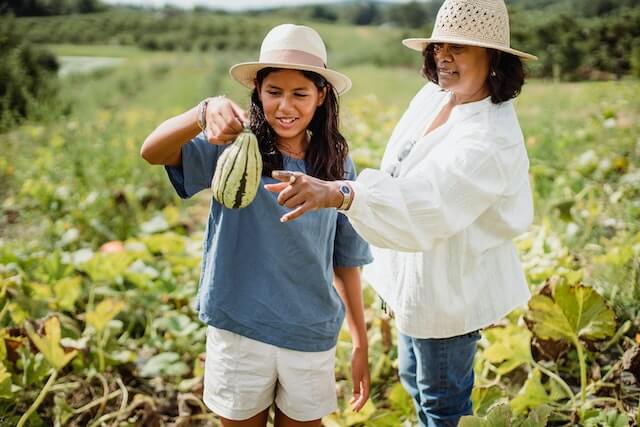
Sustainable Farming: A Beginner's Guide to Cultivating a Greener Future

In a world increasingly concerned about environmental degradation and food security, sustainable farming has emerged as a beacon of hope. As a beginner farmer, you have the unique opportunity to be a part of the solution and cultivate a greener future through sustainable farming practices. In this blog, we will explore what sustainable farming means, its key principles, and how you, as a beginner farmer, can embrace these practices to create a positive impact on the environment, your community, and your farm's long-term success.
Understanding Sustainable Farming
Sustainable farming, also known as regenerative or Eco-friendly farming, is an approach to agriculture that prioritizes the long-term health of the ecosystem, while simultaneously meeting the needs of current and future generations. It aims to balance economic viability, social equity, and environmental stewardship. At its core, sustainable farming seeks to create a harmonious and self-sustaining agricultural system that minimizes negative impacts on the environment and enhances biodiversity.
Key Principles of Sustainable Farming
-
Soil Health: Sustainable farming begins with healthy soil. It emphasizes practices such as cover cropping, crop rotation, and reduced tillage to improve soil fertility, structure, and water retention.
-
Biodiversity: Encouraging diverse crops, mixed planting, and preserving natural habitats on the farm fosters biodiversity. This supports beneficial insects, pollinators, and other wildlife that contribute to a balanced ecosystem.
-
Natural Pest Management: Sustainable farmers prioritize biological pest control, using beneficial insects and companion planting to manage pests, reducing the need for synthetic chemicals.
-
Water Conservation: Implementing water-efficient irrigation methods and practices that prevent water wastage ensures responsible water management.
-
Energy Efficiency: Seeking energy-efficient alternatives, such as renewable energy sources or reduced energy inputs, helps lower the farm's carbon footprint.
-
Local Community Engagement: Sustainable farming fosters community connections, such as selling produce locally, participating in farmers' markets, and supporting food security initiatives.
-
Waste Reduction and Recycling: Implementing practices like composting, recycling, and using organic waste as fertilizers helps close nutrient loops and minimize waste.
Getting Started with Sustainable Farming
As a beginner farmer, embracing sustainable farming practices can feel overwhelming, but taking small steps can make a significant impact:
-
Educate Yourself: Learn about sustainable farming principles, attend workshops, and connect with experienced sustainable farmers to gain insights and guidance.
-
Start Small: Begin by implementing one or two sustainable practices that align with your farm's needs and resources. Gradually incorporate more practices as you gain experience.
-
Plan Crop Diversity: Introduce a variety of crops, including cover crops, to improve soil health and enhance biodiversity.
-
Minimize Chemical Inputs: Aim to reduce synthetic chemical use and explore organic alternatives for pest and weed management.
-
Conserve Water: Adopt water-efficient irrigation techniques and consider rainwater harvesting to reduce water consumption.
-
Compost and Nutrient Recycling: Compost organic waste from your farm and use it as a natural fertilizer to improve soil health.
-
Connect with the Community: Engage with your local community by selling produce directly or participating in community-supported agriculture (CSA) programs.
Sustainable farming is not just a buzzword; it is a fundamental shift towards cultivating a greener and more resilient agricultural system. As a beginner farmer, you have the power to make a positive impact on the environment and create a legacy of sustainable practices for future generations. By prioritizing soil health, biodiversity, and community engagement, you can pave the way for a more sustainable, profitable, and fulfilling farming journey. Remember, sustainable farming is a journey, and every step you take brings us closer to a more sustainable future for agriculture and the planet. So, roll up your sleeves, embrace sustainable farming practices, and embark on an exciting and rewarding journey towards a greener tomorrow.
